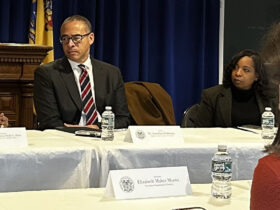The American Institute of CPAs (AICPA) today called upon Congress to extend the Paycheck Protection Program’s (PPP) March 31 loan application deadline. AICPA believes that Congress can still support small businesses and non-profits by pursuing a stand-alone vote on this critical matter, even if the Congressional COVID-19 stimulus package does not include an extension.
“We thank Congress for its ongoing bipartisan support of the PPP, which is a valuable lifeline to millions of small businesses and non-profits. However, too many small, underserved and minority-owned businesses continue to face serious challenges with the PPP application process. The accounting profession believes that Congressional action now to extend the looming deadline will help ease Main Street America’s anxiety and frustration,” said Barry Melancon, CPA, CGAM, AICPA president and CEO. “The PPP process issues are many. It is well documented that small businesses, non-profits and the CPAs who advise them are experiencing error codes when submitting a PPP loan application. We continue to provide input to the Small Business Administration (SBA) about these problems and are hopeful more progress will be made soon.”
Melancon added, “We applaud the Biden administration’s efforts to make PPP more inclusive and accessible to under-served businesses. However, these changes make it even harder for the smallest business entities – the self-employed and independent contractors – to meet the March 31 deadline. The SBA has not even released the new rules for these changes. A deadline extension of at least 60 days would enable these small, underserved businesses the time needed to understand these new guidelines and also give the SBA more time to correct these error code issues.”
About the American Institute of CPAs
The American Institute of CPAs (AICPA) is the world’s largest member association representing the CPA profession, with more than 431,000 members in the United States and worldwide, and a history of serving the public interest since 1887. AICPA members represent many areas of practice, including business and industry, public practice, government, education and consulting. The AICPA sets ethical standards for its members and U.S. auditing standards for private companies, nonprofit organizations, and federal, state and local governments. It develops and grades the Uniform CPA Examination, offers specialized credentials, builds the pipeline of future talent and drives professional competency development to advance the vitality, relevance and quality of the profession.














